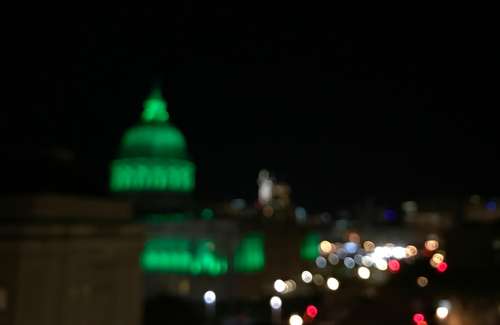The events of January 6, 2021, at the U.S. Capitol left a mark on American history—a day marked by chaos, uncertainty, and deep political divisions. Over time, a new narrative has emerged, one that attempts to minimize the events and cast them in a different light. This shifting of the story isn’t just about politics; it’s a battle over how history will remember one of the most troubling days in recent US history.
Background and Context
The Capitol attack is a subject that continues to provoke intense debate. Both Americans who witnessed the chaos and those who study that day remember it differently. Some view it as an insurrection, while others simply call it a Capitol riot or siege. But amid these varying interpretations, one thing is undeniable: the events left a lasting scar on US politics.
When looking at the timeline, it is hard to ignore how the narrative has shifted over time. Many believe that Trump’s narrative has played a key role in reframing the event. Instead of fully accepting the widely reported details, he and his supporters have insisted on different accounts, arguing that the event has been misrepresented by mainstream institutions. It’s as if history is being repackaged: presenting one story available to those in power and another to those looking to verify documents and witness testimonies.
One might ask, why would someone try to rewrite history? The answer can be found in the powerful influence of narrative in political discourse. When you shift the narrative even slightly, you shift public perception. And as many in Washington have noted, this is not just about facts—it’s about the power of belief and memory in shaping a nation.
The Department of Justice and the Historical Revisionism Debate
A short while ago, attention turned to the involvement of the Department of Justice in addressing the aftermath of the Capitol incident. There are discussions around the hiring of a controversial figure known for lending credibility to efforts that often seek to reframe historical events. This move is seen by some as an attempt to control the narrative even more tightly.
In meetings and public statements, officials have hinted at the need for a careful reassessment of what really transpired during the Capitol attack. While the motive is said to be ensuring an accurate historical record, critics argue that it conveniently aligns with a broader agenda to cement a particular viewpoint on the event. Imagine trying to reassemble a complex jigsaw puzzle only to decide halfway to change the picture on the box—this is how many people see these efforts to subtly rebrand history.
The involvement of the Department of Justice in this narrative shift is a clear indicator of the institutional divides that continue to plague American political discourse. For those who followed the developments closely, the idea of hiring someone with a controversial background for such a task raises as many questions as it answers.
Impact and Reactions
Many Americans are deeply divided over the rewriting of history regarding the Capitol attack. For a lot of people, this isn’t just a reinterpretation of facts, but a deliberate attempt to alter a painful episode in the nation’s timeline. On one hand, there are those who see Trump's narrative as a counterbalance to what they believe to be biased media reporting. They argue that every story has more than one side, and it’s only fair to question the official account.
On the other hand, critics insist that the kind of historical revisionism being pursued risks undermining not just the event itself but also the trust in democratic institutions. They fear that if history is rewritten for political convenience, then the foundational lessons of accountability and truth might be lost. Do you really want future generations to grow up with altered memories of one of the pivotal moments in US history?
There are also varied responses from political figures. Some lawmakers and analysts have warned that efforts to spin the story serve only to heighten political controversy. By muddying the waters with selective retellings of events, the path to a unified national narrative becomes even more challenging. This is not just an academic debate but one that affects everyday American lives, as political discourse becomes ever more polarized.
Broader Implications for US Politics and the Narrative of History
Looking beyond the immediate narratives of January 6, one quickly realizes that this struggle over historical revisionism signals deeper issues within US politics. Historical narratives hold the power to decide futures. Just as an artist repaints a mural, so too can those in power reshape public memory to suit political ends.
Trump’s efforts to rewrite the history of the Capitol attack aren’t isolated. They reflect a broader trend within US politics where multiple narratives vie for legitimacy. With every retelling, there is an opportunity to shift opinions, mobilize supporters, and reinforce ideological divides. At its core, this is about control—control over past events and, by extension, control over public sentiment in today’s turbulent climate.
Political controversy is rife in these debates, with terms like misinformation and insurrection used heavily on both sides of the fence. The revision of history, in this case, becomes both a tool and a weapon. For some, it reinforces a sense of resilience; for others, it represents the dangerous winds of change that could unsettle an already fraught political system.
You might wonder if a single narrative can ever truly capture complex events like a Capitol siege. The answer, as it often is, is complicated. Historical revisionism carries inherent risks but also reflects an enduring human desire—to be heard, to understand, and yes, sometimes even to reframe our past in the search for truth amidst chaos.
Conclusion: The Crossroads of Memory and Politics
In wrapping up our conversation on this topic, it is impossible to ignore how Trump's efforts to reshape the narrative around the Capitol attack are emblematic of larger struggles in US politics. This isn’t just about one event, but about how we understand and remember the past. The integration of controversial figures by powerful institutions, like the Department of Justice, into this rewriting process only adds layers of complexity—and controversy.
As we reflect on this evolving narrative, it becomes clear that the battle over memory is far from over. Every single retelling influences how millions perceive past events, which in turn affects every discussion of public policy and national identity. With every new claim and counterclaim, Americans stand at a crossroads where the integrity of history is pitted against the ambitions of political power.
Ultimately, the debate around the Capitol attack reminds us of a vital lesson: history is not just written in books or courtrooms; it is written in the hearts and minds of the people. And in the contested arena of US politics, ensuring that the true events of January 6 remain untarnished is a responsibility we all share. Isn’t it time for all voices to come together in the pursuit of an honest, unaltered history?




